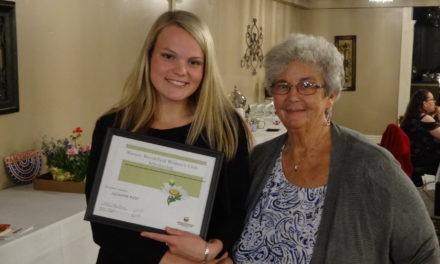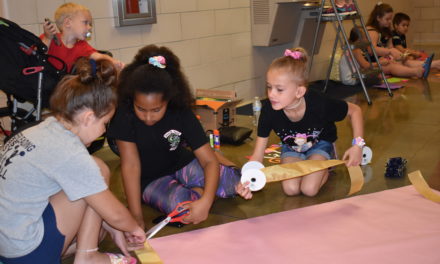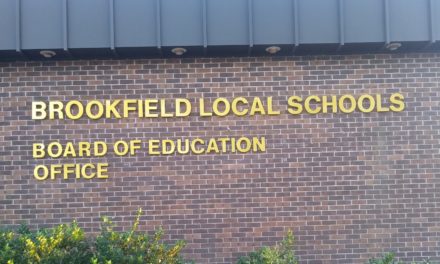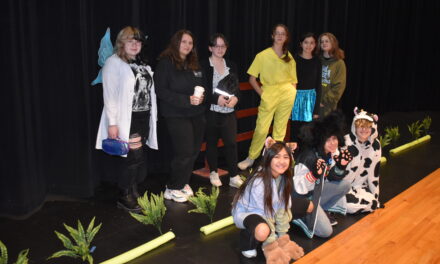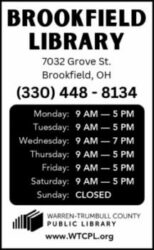Have questions about the levy? School officials will hold an open forum at 2 p.m. Oct. 28 at the school, 614 Bedford Road.
Brookfield school administrators have issued a list of priorities for how they would spend the roughly $250,000 that would be raised if a five-year permanent improvement levy is passed by voters in November.
The list does not include some issues that are priorities for the district, but cannot be paid for with PI money, such as hiring a school resource officer, and it does not include a major project, construction at the middle school to fix the lifting floors and cracking walls caused by shifting shale, because officials hope an arrangement can be worked out where that work can be done without school funds, said Superintendent Velina Jo Taylor.
The list also is not a promise of how to spend the PI funds, should voters approve them, she said. Taylor said she wants the flexibility to be able to use them for an emergency that might arise.

Brookfield Middle School eighth-grade teacher Marissa Miller and Brookfield Board of Education member George Economides assemble a sign promoting the school’s request for a permanent improvement levy.
However, Brookfield Board of Education member George Economides said the district should try to adhere as closely to the list as possible to prove that the district can do what it says it will do.
The list addresses four areas: security, transportation, technology and maintenance.
Although the school building is only eight years old, the philosophy of school security is changing every year as more and more violent incidents occur at schools, and Taylor said she wants to address areas now seen as vulnerable.
The list includes installing new security cameras at the school, replacing analog ones with digital models, which would provide better quality images and allow remote access by the police department, and putting cameras on buses; applying ballistic film to windows to help deter violence directed at the building, and installing concrete bollards that would help prevent vehicular access to the building.
Middle School secretary Dawn Burns said school safety and security should be the top priority.
“Our job is to keep children safe at all times,” she said, noting she monitors cameras from the school office.
That’s hard to do with the quality of the cameras in place now, and the fact that areas such as the upper parking lot are not covered by cameras, Burns said.
“We definitely need new cameras here,” she said. “When I sit at my desk and somebody’s coming (to the door), I can’t see who they are unless they put their nose right up to the camera.”
The district has an aging fleet of buses, which increases maintenance costs. The district hopes to buy one new one a year for the five years the levy would be in place.
In terms of technology, administrators want to institute a regular replacement program of computer server blades, which hold all the information used by staff and students.
The maintenance issues address the 1930s-era bus garage and the 1940s-era football stadium, which Taylor said are “presenting hazardous conditions.”
Officials are exploring a number of options for the bus garage, which range from small renovations at the existing site on Grove Street to building a new one there or at the school campus.
The priorities at the football stadium are replacing the rotting light poles, building a new press box, which is sinking into the locker room, and building handicapped-accessible restrooms.
Addressing the argument that sports should be a lower priority, Economides said it is the last priority.
“There is not one person on the (school) board who would say, ‘Let’s do the press box first,’” said board member Ronda Bonekovic.
But, failing to do anything about the football field’s needs could have long-lasting implications, Taylor said. If the light posts fail, she said, there will no longer be “Friday Night Lights.” Instead, games would be moved to Saturday afternoons.
A proposal by a group of private citizens to raise money to move the football stadium to the school complex is on hold, officials said.
The amount of money the levy would raise “is really not much money when we have a whole lot of projects to do,” Economides said, but Taylor said even that amount would help the administration go from reacting when something happens to trying to head it off before it happens.
Approving the levy, “will set us up for a lot of success,” she said.
If the levy fails, “We’ll do what we’ve always done – we’ll make the best of the situation,” Taylor said. “That’s what we do at Brookfield.”
Economides said residents should come to school board meetings and ask questions about the administration’s plans and how money is being spent. The levy committee will hold a public forum at 2 p.m. Oct. 28 at the school. Taylor said she is willing to talk to groups about the levy.
At 1.9 mills, a property worth $100,000 would pay an extra $66.50 a year; at $75,000, $49.88; at $50,000, $33.25.

